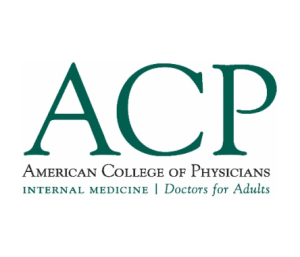
Endorsed the Preserving
Patient Access to Primary
Care Act of 2009 (H.R. 2350)
The 128,000-member American College of Physicians (ACP) has endorsed the Preserving Patient Access to Primary Care Act of 2009 (H.R. 2350), introduced by Rep. Allyson Schwartz (D-PA). "Primary care is the best medicine for better health and lower costs," ACP noted, "and this is the best medicine for curing the growing crisis in primary care."
Joseph W. Stubbs, MD, FACP, president of ACP, wrote Rep. Schwartz last week to congratulate her on her leadership on the critical issue. In his letter, Dr. Stubbs emphasized his own experience as a general internist practicing in a small Georgia town.
"I have been fortunate to experience the joy of working, in a collegial and collaborative fashion with nurse-practitioners, physician assistants, and other physicians on our health care team, to provide the best possible outcomes for our patients," Dr. Stubbs noted. "My own experience supports what the evidence also tells us: primary care is correlated with better health status, lower overall mortality, and longer life expectancy, and patients with primary care physicians have lower health care expenditures, as stated in the findings section of the bill."




Ad Statistics
Times Displayed: 42525
Times Visited: 1201 Stay up to date with the latest training to fix, troubleshoot, and maintain your critical care devices. GE HealthCare offers multiple training formats to empower teams and expand knowledge, saving you time and money
"This bill addresses the critical shortage of primary care providers in America," said Congresswoman Schwartz. "Primary care is at the core of America's health care system, and without a sufficient number of doctors, nurses and others providing primary care, Americans face long wait times to see their doctors and health care providers, as well as other obstacles to quality care. The bill outlines a series of different measures designed to help support the field of primary care." The legislation:
* Requires a study to recommend the designation of primary care as a shortage profession, as long as certain criteria are met;
* Provides recruitment and retention incentives, through grants, scholarships, and loan forgiveness, to encourage medical students to choose careers in primary care;
* Establishes measures to support and expand the patient centered medical home (PCMH) model of care to ensure that primary care practices are able to achieve the infrastructure and have the capability to provide patient-centered, physician-guided coordinated care; and,
* Proposes comprehensive reforms of payment systems under Medicare, to support, sustain, and enhance the practice of primary care.
A recent study in the Journal of the American Medical Association showed how critical the situation is becoming. The JAMA survey results of 1,200 fourth-year medical students showed that only 2 percent plan to go into primary care internal medicine. In a similar survey in 1990, the figure was 9 percent.

